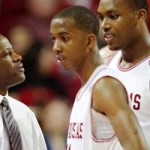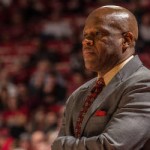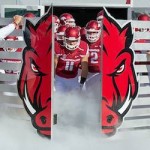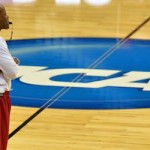
Let’s start off by giving Mike Slive credit for being willing to admit the Southeastern Conference has a problem.
Slive has overseen a lot of good in his time as commissioner of the league. Thanks to his leadership the SEC is raking in gobs of titles and TV money. When your conference is beating its peers in pretty much everything from equestrian (Auburn 2013) to football (seven straight and counting), and when member schools are reaping the benefits billion dollar TV deals, a lesser commissioner might be tempted to ignore any deficiencies.
And there should be no doubt that men’s basketball is a deficiency in the SEC.
Kentucky winning the 2012 national title on the heels of a 2011 Final Four appearance made it easy for many folks to look the other way. But Big Blue losing an opening round NIT game at Robert Morris and only three SEC teams making the NCAA Tournament this past season, creates a situation where it is nearly impossible to defend the league.
Which is how we arrived at Slive publicly acknowledging this week that the SEC stinks at basketball.
Well, those weren’t his exact words, but his comments about league teams needing to schedule better was a clear sign he is not happy with basketball. Slive, in fact, has hired a scheduling guru to help SEC teams improve their non-conference scheduling. Things were so bad last year that five of the conference’s 14 teams were ranked 100 or below in the RPI (Arkansas, by the way, wasn’t quite that bad. The Razorbacks were in the low 80s).
By playing stronger opponents, Slive said, the teams will be more attractive when the selection committee is handing out NCAA Tournament bids.
Let us not forget that better games also provide better TV inventory for ESPN. With the SEC Network scheduled to launch next year, Arkansas-Alcorn State isn’t going to lure advertisers to ESPN. And a league full of teams that struggle to make the NCAA and NIT fields won’t be particularly attractive to advertisers.
Slive’s message was loud and clear to coaches this week is Destin at the league meetings.
“We’ve got to come up with a recipe that is beneficial for all the conference teams,” Razorback Coach Mike Anderson said during a recent appearance on Sports Talk With Bo Mattingly. “I think we’re in transition when you talk about the coaches and teams. Now it’s time to start making things happen in terms of getting more teams in the NCAA Tournament. [Scheduling] is going to be one of the biggest topics of conversation.”
Strength of schedule only goes so far, though.
This, to me, is much like the SEC’s move to eliminate divisions in basketball two seasons ago. That was supposed to make the league more attractive at tournament time.
It didn’t. It won’t.
This is all just window dressing. Lipstick on a pig.
Better opponents hardly matter if the quality within the league doesn’t improve. If you’re a mediocre or bad team, you’re only going to look worse against better teams.
Look, for example, at the Arkansas Razorbacks last season. They played eight teams that made it into the NCAA Tournament. How’d they fare in those games? Arkansas was 4-6 in 10 games. Those four wins all came at home, so they were not as important to strength of schedule as if they’d been on the road.
Had the quality of opponents been higher or if more of those games had been on the road — likely making them losses — Arkansas probably winds up even less attractive at tournament time. Look at the Razorbacks in 2010-11 when they had a Top 50 RPI, but won only 14 games. The issue that year wasn’t scheduling. It was winning.
Ultimately, it comes down to attracting better players and better coaches/recruiters for basketball.
Look at football. The league is full of coaches who are arguably among the top of their profession. They recruit accordingly.
Outside of Billy Donovan at Florida and John Calipari at Kentucky, what does the SEC have in the way of established elite basketball coaches?
When SEC football teams went looking for coaches in the offseason they hired conference champions from the Big Ten, Big East and Sun Belt. Arguably, the SEC added the best available coaches from those three leagues. Mike Gundy nearly made the jump from the Big 12 to the SEC.
Basketball hires by most schools haven’t been nearly as impressive. Would the best basketball coaches in the Big Ten and Big East jump ship for SEC openings? Not likely. Anderson was one of the best in the Big 12 when Arkansas hired him, but his ties to Fayetteville were a huge selling point, making him an exception.
Is it an issue with resources? Do league schools need to put more money into basketball? Certainly, this new TV contract will allow for that.
Maybe SEC athletic directors are, for the most part, content with being competitive in just about everything else but basketball.
Slive doesn’t seem OK with that being the case. It is commendable that the commissioner sees an issue that he wants fixed and it taking steps to do it.
Solving the SEC’s struggles basketball, though, will take more than tweaking schedules. Perhaps league members need a guru to approve their basketball hires.












